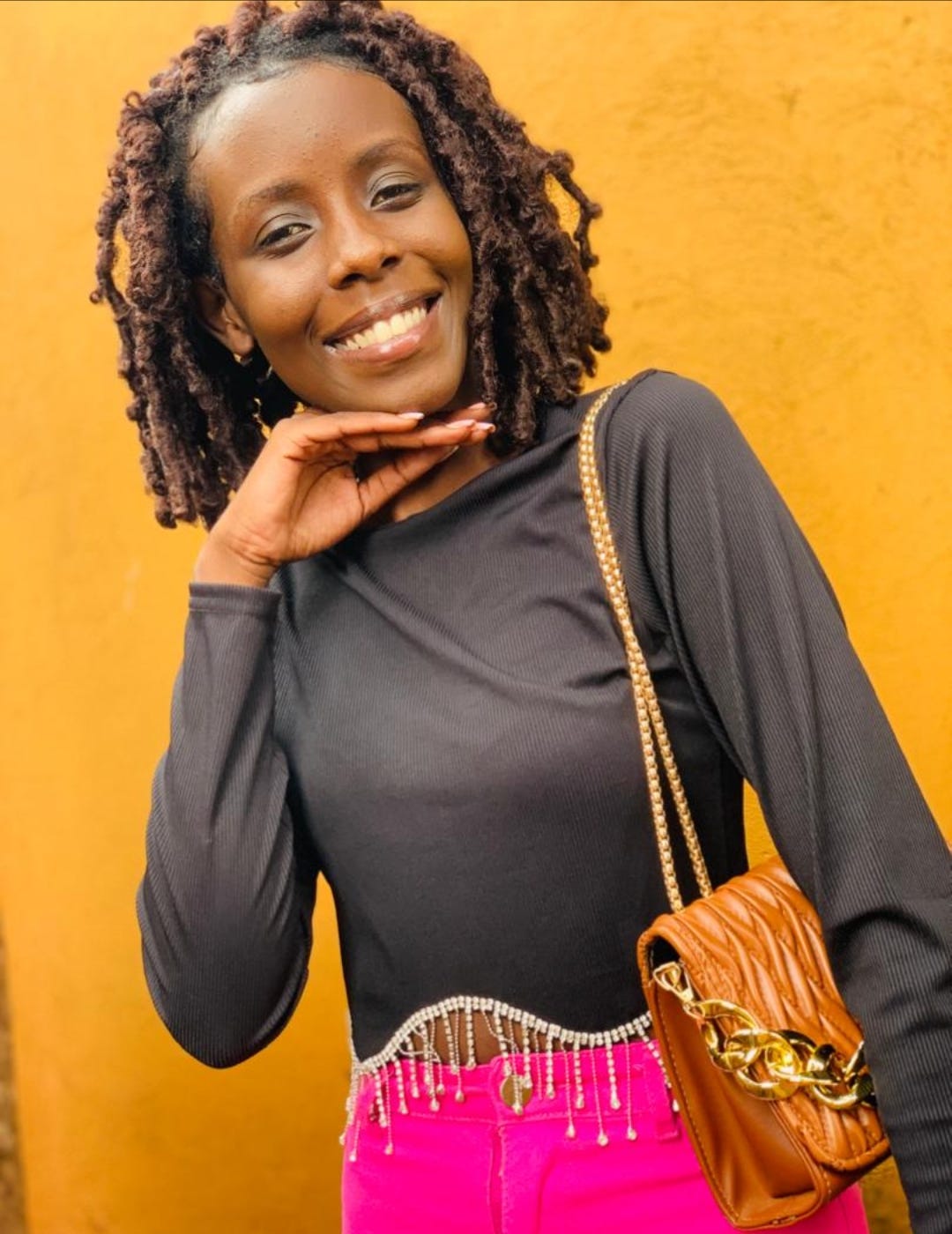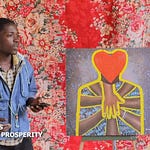In this 3 1/2 minute video, Liz of SACVI at Kakuma Refugee Camp in Kenya shares her backstory and describes the food security oriented programs she runs for women in the camp, making the case for why refugee-led, self-help organizations are needed.
Meet Liz, a lively 24-year old Congolese refugee living in Kakuma Refugee Camp in Kenya. She is a member of the community-based organization called Social Action Center for Vulnerable Individuals (SACVI). SACVI is a refugee self-help organization founded by and for refugees living in the camp. It was founded in 2016 by
who I featured earlier in this series.Liz left her home country of Democratic Republic of Congo (DCR) when she was just a toddler to live with her aunt in Uganda. Like many other people who have fled the many-decade armed conflict in the DCR which has killed 6 million people to date and displaced another 6 million more, Liz left the country for safety. She then spent her childhood and teen years in Kampala, Uganda with her aunt while her mother moved on to Kakuma Refugee Camp in Kenya.
Then, when she turned 22, just two years ago, Liz moved to Kakuma as well to be reunited with her mother. That is when she met Andre Lutula and the other members of the refugee-led organization called SACVI.
Her role at SACVI is to organize and supervise trainings for women refugees. Delivering programs is a challenge for SACVI as it is for many other refugee-led self-help networks in the camp. Due to high costs for materials in general in Kenya plus the remote and isolated nature of the camp, materials such as seeds, watering cans, paper, pens, and books are expensive and in short supply.
I asked Liz what the women need most and how SACVI is addressing those needs Currently, she provides permaculture-based training to teach women how to grow their own food outside their homes in small kitchen gardens, but she has dreams of adding hairdressing and tailoring as well.
Small Kitchen Garden Training
Last year, SACVI, under Liz’s leadership trained 50 women in permaculture principles and skills. Fifteen of the women successfully completed the program last year and 35 remain for additional skills and support. The aim, as with most permaculture programs in refugee environments and other rural and impoverished areas in Africa, is to provide people with the know-how and skills to design, often at a small scale (1-2 meters squared), vegetable gardens that leverage local resources and conditions and are adapted to the environment to grow their own food.
As Liz describes in the video, food provided at the camp is insufficient. Families receive from UNHCR 4 kg (or 8 lbs) of grain (e.g. sorghum or rice) per month. It’s not enough.
“We would love to do more of the permaculture because food is a basic need. Other things follow,” she says. “Yes, we need education, we need everything. Everyone deserves to get two meals a day. Other things can follow when you are healthy and stable health wise.”
Hair Dressing & Styling
Liz has experience with hairdressing and nails. She hopes to one day open up her own salon to provide beauty services. In the meantime, she is eager to train other women in hairdressing. She dreams of supplies such as combs, braids, hair dryers, and sinks to train other women on how to provide hair services and manicures. But the material costs are too high and currently out of reach.
I asked whether salons in Kakuma are home-based enterprises or in rented spaces. She explained that in Kakuma, salons are different. Women set up structures on the side of the road to provide braiding and other services.
Tailoring & Hand-Sewing
Tailoring is another skill that is in high demand in the camp, but requires materials and know-how. Liz hopes to establish a program that teaches women how to handsew or even use sewing machines so that they can earn an income for themselves. For instance, children need sewn uniforms for schools and people need their clothing repaired. While the women would benefit from sewing machines, a hand-sewing program would be a first step in helping women to earn income.
Where in the world is Liz?
Kakuma Refugee Camp is a remote and isolated camp in the northwest corner of Kenya that is home to over 200,000 people who have fled war and famine in their home countries.













